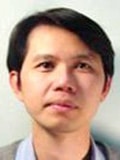
More Complementary & Integrative Healthcare Articles
Acupuncture Helps Depression and Anxiety
Depression can be characterized as a loss of interest in most usual activities. The symptoms may include feeling hopeless, insomnia, agitation, decreased or increase in appetite, weight loss or weight gain, decreased libido or energy, inability to make a decision, and repeated thoughts of death.
Another common mood disorder is anxiety. Some of the symptoms of anxiety include worry, muscle tension and aches, twitching, feeling shaky, restlessness, poor concentration, irritability, overreaction, sleep disturbances, nausea, fatigue, shortness of breath, irregular heartbeat, hot flashes or chills, frequent urination, dizziness.
Research shows that acupuncture may be an effective alternative for low spirits. In 1998, the NIHs Office of Alternative Medicine funded a study at the University of Arizona. Thirty-four seriously depressed women were divided into three groups.
The first group received depression-specific acupuncture, the second group got non-specific treatment, and the third group was put on a wait list, before being placed on eight weeks of specific treatment for depression. Following the treatment, the depression-specific groups experienced a 43 percent reduction in their symptoms compared with a 22 percent reduction for the non-specific treatment group.
Acupuncture appears promising for the treatment of depression during pregnancy. It may provide pregnant women with a safe alternative, suggests a new pilot study reported in the Journal of Affective Disorders in 2004. Pregnant women with depression who received acupuncture tailored for depressive symptoms got more relief than women who received nonspecific acupuncture or massage. Furthermore, women who responded to any treatment reported significantly less depression at 10 weeks postpartum.
In a Stanford University study, 61 pregnant women with nonpsychotic major depressive disorder were randomly assigned to one of three treatments active acupuncture that specifically addressed depression symptoms, a valid control acupuncture that did not specifically address depression symptoms, and massage. Overall, 69 percent of the women responded to the acupuncture specific for depression, a rate comparable to the 50 to 70 percent response rates in clinical trials of standard depression treatments.
Acupuncture can also be an effective treatment for chronic anxiety disorders according to a Yale University study. The patients were treated with auricular acupuncture before surgery. Analyzing anxiety levels using repeated measures analysis of variance demonstrated the patients in the relaxation group were significantly less anxious than in the sham group showing that auricular acupuncture at the “relaxation” point can decrease anxiety.
Investigating the effects of acupressure on pre-operative anxiety, a randomized placebo controlled study was conducted during the pre-operative period with a duration of 40 minutes (acupressure was applied for 10 minutes and thereafter patients were observed for another 30 minutes). Anxiety was recorded on a visual stress scale (VSS) at the start of the study and thereafter at 10 and 40 minutes. Pre-operative anxiety decreased significantly during acupressure application.
So, there are many studies reporting that acupuncture is effective in treating depression and anxiety. It has been shown to have some effectiveness in mild to moderate depression and anxiety, as well.
Other Articles You May Find of Interest...
- Sound Bathing
- What To Expect During A Cupping Therapy Session
- Signs You Should Look For Authentic Weed While Buying Online
- What Is Lipedema?
- Why Is Trainwreck Kratom The Best-Selling Product In The Market?
- From Seed to Sale: How Maryland Dispensaries Ensure Quality Cannabis
- How Do CBD Gummies Make You Feel (2024)?

















